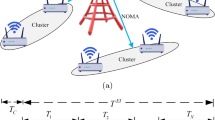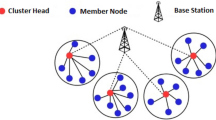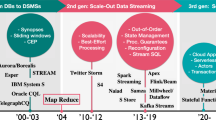Abstract
In time driven applications we are often bound to make a keen compromise between the sampling resolution (or sampler architecture) and available resources. This is especially true in WSNs (Wireless Sensor NetworkS), although the complexity of event driven environments present us new opportunities for optimizations. In this paper we propose a multi resolution sampling protocol for event driven WSNs that can dynamically adapt to event signatures and can efficiently schedule resource intensive samplers. The system can monitor the environment by a resource optimized sampler which is only to detect events and not to store or process any samples. When scheduled the high resolution sampler is activated to sample the appropriate physical property of the phenomenon marked by the event, via resolution optimized hardware. Since it takes time to detect an event (triggered by the signal we already ought to sample) and to power up the high resolution, resource intensive sampler, we must start the sampling before the signal is detected. This calls for dynamic event forecasting, which is the main feature of the proposed system.














Similar content being viewed by others
References
Chen, S. M., & Chen, C. D. (2011). Taiex forecasting based on fuzzy time series and fuzzy variation groups. IEEE Transactions on Fuzzy Systems, 19(1), 1–12.
Dargie, W., Chao, X., Denko, M. (2010). Modelling the energy cost of a fully operational wireless sensor network. Telecommunication Systems
Kuhn, H. W. (1956). Variants of the hungarian method for assignment problems. Naval Research Logistics Quarterly, 3, 253–258.
Li, S., Lin, Y., Son, S.H., Stankovic, J.A., Wei, Y. (2004). Event detection services using data service middleware in distributed sensor networks. Telecommunication Systems
Liu, J., Liu, J., Reich, J., Cheung, P., Zhao, F. (2004). Distributed group management in sensor networks: Algorithms and applications to localization and tracking. Telecommunication Systems
MathWorks: Matlab documentation (2013). http://www.mathworks.com/help/
Natalizio, E., Loscrí, V. (2011). Controlled mobility in mobile sensor networks: advantages, issues and challenges. Telecommunication Systems
Ollos, G., Vida, R. (2011). Adaptive event forecasting in wireless sensor networks. In: IEEE Vehicular Technology Conference (IEEE VTC 2011), Budapest, Hungary
Ollos, G., Vida, R. (2012). Signature extraction for event forecasting in wireless sensor networks. In: in Network Strategy and Planning Symposium (NETWORKS)
Öllös, G., Vida, R. (2012). Event signature extraction and traffic modeling in wsns. IEEE Telecommunication Systems journal (accepted for publication, January 2012)
Sheu, J.P., Hu, W.K., Lin, J.C. (2008). Ratio-based time synchronization protocol in wireless sensor networks. Telecommunication Systems
Y., C., P., P., P., B., L., M. (2009). Robust short-term load forecasting using projection statistics. In: 2009 3rd IEEE International Workshop on Computational Advances in Multi-Sensor Adaptive Processing (CAMSAP), pp. 45–48
Yang, H., Sikdar, B. (2003). A protocol for tracking mobile targets using sensor networks. In: Proceedings of the First IEEE International Workshop on Sensor Network Protocols and Applications, pp. 71–81
Acknowledgments
We the authors acknowledge that the High Speed Networks Laboratory of the Budapest University of Technology and Economics has partially sponsored this work. http://www.hsnlab.hu.
Author information
Authors and Affiliations
Corresponding author
Rights and permissions
About this article
Cite this article
Öllös, G., Vida, R. Adaptive multiresolution sampling in event-driven WSNs. Telecommun Syst 61, 337–347 (2016). https://doi.org/10.1007/s11235-015-0005-x
Published:
Issue Date:
DOI: https://doi.org/10.1007/s11235-015-0005-x




